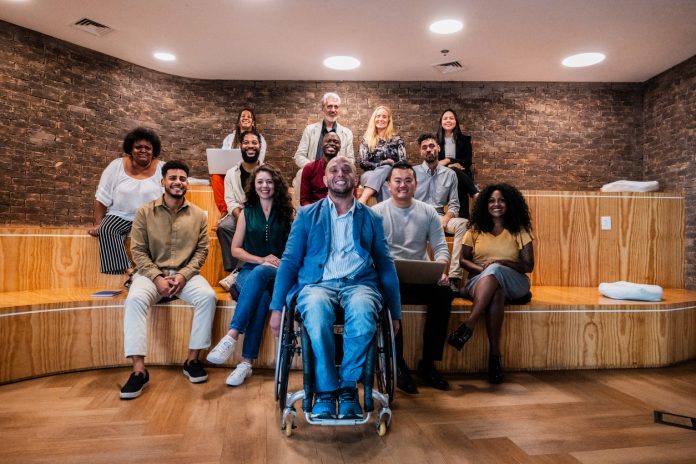The Health Secretary, Wes Streeting’s, call for a “new relationship” between the Department of Health and Social Care and NHS England is an opportunity for more effective collaboration
With the government’s ambitious goal of getting more people with health conditions and disabilities working, there are also cross-departmental collaborations and procurement reforms that can help achieve this end.
Working with chronic mental health & musculoskeletal (MSK) conditions
The Department for Work and Pensions (DWP) and the National Health Service (NHS) have a significant opportunity to collaborate more closely to support individuals living with chronic mental health or musculoskeletal (MSK) conditions in finding and staying in work. Poor mental health and MSK conditions are the main causes of economic inactivity in the UK population. By more effectively leveraging digital treatments and working together, these two entities could create a more integrated approach to address the barriers faced by these individuals.
The recently published ‘Get Britain Working’ white paper on job seekers is a step in the right direction. The document outlines strategies to improve employment support for individuals with chronic conditions by scaling up and deepening the contribution of the NHS and wider health system to improve employment outcomes.
Access to Work scheme
One key initiative that could facilitate this collaboration is the DWP Access to Work scheme. This scheme provides practical and financial support to disabled individuals and those with health conditions to help them start or stay in work. Support can include funding for specialist equipment, support workers, travel costs, adaptations to the workplace and digital health tools.
But Access to Work has been a victim of its own success. In the past two years there has been a surge in applications with the system unable to keep up and a growing backlog. Ministers appear to be considering cuts to the scheme, with comments suggesting they will take measures to cut the number of individuals eligible for the scheme and increase obligations on employers to make more adjustments themselves in the workplace.
At a time when the Government has a focus on supporting people with chronic health conditions and disabilities back to work, reducing access to this increasingly popular scheme rather than providing adequate resources to implement it, and reforming it if necessary to make it more effective, risks missing an opportunity.
At the same time, the NHS has announced it is launching a £45 million trial to improve health and economic activity in South Yorkshire, North East and North Cumbria, and West Yorkshire. These “Health and Growth Accelerators” aim to boost health and tackle conditions affecting work ability, such as cardiovascular issues, diabetes, back pain, and mental health. The trial will assess the economic benefits of various health interventions, including talking therapies and digital tools for mental health and musculoskeletal pain. If successful, these initiatives could be expanded nationwide.
Former NHS chief executive Amanda Pritchard described how by tackling a rise in health-related economic inactivity and by helping people stay in work or get back to work, the NHS can be a key driver for economic growth in England: “Whether it is dedicated employment advisers in back pain clinics, new digital talking therapy tools or providing more support for people to manage their blood pressure or diabetes, the work of these accelerators will be vital in helping us boost peoples’ health whilst also identifying the health interventions that best prevent economic inactivity.”
Digital treatments
Yet there has been an ongoing challenge to the adoption of digital treatments due to funding constraints faced by the NHS. The private sector is developing effective innovative digital health solutions, but they often struggle to gain traction due to limited NHS funding. It is essential for the government to recognise the potential of these digital treatments and allocate adequate resources to support their implementation in the NHS.
The DWP Work Aspirations of Health and Disability Claimants survey found nearly half (44%) of people with a mental health condition expect to be able to work in future if their health improves. A third (32%) of those claiming health and disability benefits believe they can work now or in future and 5% say that they would be ready now if the right job or support were available. The survey also found that those out of jobs overwhelmingly see work as a key part of their identity and a route to higher self-esteem, happiness and security.
The DWP can play a crucial role in addressing this issue by promoting the availability of digital treatment options to individuals looking to find or remain in work. With adequate reimbursement and adoption of digital treatments in the NHS, more people can be helped to find a better quality of life and to find or remain in work.
A closer collaboration between the DWP and NHS, along with effective utilisation of schemes like Access to Work and digital treatments, could significantly improve employment outcomes for individuals with chronic mental health or MSK conditions, help get Britain working again, and aid more people to remain in the workforce. Addressing funding challenges and promoting access to support are crucial steps in realising this potential.











